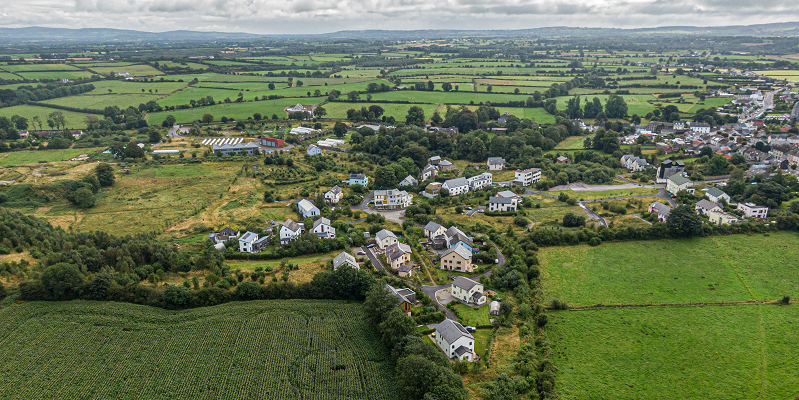
Geography is central to sustainable development and Ireland’s just transition according to Dr. Noreen Byrne, lecturer on the MSc Co-operatives, Agri-Food and Sustainable Development at Cork University Business School.
Writing in a report published by ARC2020, an independent European NGO, and the Centre for Co-operative Studies at University College Cork, called Rural Ireland on the Move, Dr Byrne has shown the merits of a geographical approach.
In this instance, this approach unlocked the capacity to integrate landscapes and land use with the dispersal of credit unions and cooperatives. In so doing, it reveals the untapped potential in rural Ireland to make the adjustments necessary for addressing the climate and biodiversity crises.
This wider geographic lens will enable a greater understanding of the complex environmental and socio-economic challenges that regions face.
Although geography would seem to be increasingly demoted within the Irish second level educational system, there is increasingly a recognition of its centrality to sustainable development and a just transition.
The importance of a geographical perspective is highlighted in the renewed focus on landscape approaches to land management and environmental challenges: sectoral, high-level or indeed individual single farm approaches, tend to have limited success in enabling sustainable transition.
By bringing in the economic and social aspects of contemporary geography studies, students are far better equipped to deal with the complexity and interrelatedness for implementing change.
And by encouraging students to think about the different roles stakeholders play in managing geographies and landscapes, the MSc Co-operatives, Agri-Food and Sustainable Development provides graduates with the knowledge to work in a variety of organisations and fields.
That’s why the MSc Co-operatives, Agri-Food and Sustainable Development places such as strong emphasis on equipping students with the organisational and management skills they need to make innovative contributions to the development of local economies.
The five month work placement opportunities the one-year Masters programme offers is especially good for creating real world practical activity.
In practice, this means that MSc Co-operatives, Agri-Food and Sustainable Development graduates work in organisations that are dealing with current and future environmental, social and economic issues, including climate change, collaborative economies, and sustainable rural communities.
Our graduates are employed in co-operatives, social enterprises, LEADER programmes, voluntary organisations, agri-extension initiatives, charities, NGOs and business development organisations.
You can also find them contributing to national policy, working with leading consultancy firms, local enterprise organisations, food marketing companies and in CSR roles across a multitude of industries.
As the programme provides students with the practical skills to work at the centre of a regional nexus that binds co-operatives, community organisations, rural industries and local government together, they understand how geography shapes these distinct networks.
As faculty, we also work to ensure that graduates can communicate those solutions to the highest professional standards so that they can position themselves at the centre of complex geographical networks.
In doing so, the course is designed to optimise employment opportunities, a facet recognised through its accreditation by the globally renowned Institute of Management Consultants and Advisors.
Learn more about the MSc programme in Co-operatives, Agri-Food and Sustainable Development.

